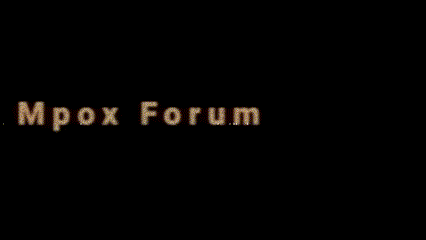
| PANDEMIC ALERT LEVEL |
| 123456 |
| Mpox Discussion Forum: Latest News & Information Regarding the Clade 1b Mpox Virus |
Post Reply - New emerging Monkeypox strain in Congo |
| Post Reply |
| Message |
| Topic - New emerging Monkeypox strain in Congo Posted: 27 Jun 2024 at 8:28am By Dutch Josh |
|
https://afludiary.blogspot.com/2024/06/coca-call-today-mpox-clinical.html or https://afludiary.blogspot.com/2024/06/coca-call-today-mpox-clinical.html ;
Later today (2:00 PM – 3:00 PM ET) the CDC will hold a COCA call for clinicians on the continually evolving Mpox threat. The clade IIb outbreak which was declared a global health emergency in 2022 ended after only 10 months, but we continue to see sporadic infections around the globe.
Last March a study was published Eurosurveillance: Ongoing Mpox Outbreak in South Kivu Province, DRC Associated With a Novel Clade I Sub-lineage, which contained the first genomic analysis of samples from a previously unaffected region of the DRC (the city of Kamituga).
In April, in Preprint: Sustained Human Outbreak of a New MPXV Clade I Lineage in Eastern Democratic Republic of the Congo, we saw a further analysis, which called for this new lineage to be named Clade Ib, and warned of its potential to spread globally. DJ, for more (link)info see above link. A march 15 link; https://www.cdc.gov/poxvirus/mpox/veterinarian/mpox-in-animals.html or https://www.cdc.gov/poxvirus/mpox/veterinarian/mpox-in-animals.html ; Mpox is a zoonotic disease, which means it can spread between animals and people. The exact source of mpox in nature is not known, but it is believed that small mammals, such as rope and sun squirrels, giant-pouched rats, and African dormice may carry the virus in parts of West and Central Africa. People can get infected with the virus through direct contact with infected animals, often while hunting, trapping, and processing infected animals or their body parts and fluids. Small mammals can carry the virus without symptoms, while non-human primates like monkeys can get sick with mpox and have signs of disease like humans. What We Know About Mpox in Animals
What We Know About Mpox in Pets
No pets or other animals were confirmed to have mpox during the global mpox outbreak that began in 2022. Both CoViD and H5/flu is widespread in mammals and because of that hard (if not impossible) to control. Mpox may spread in new animal hosts. https://www.britannica.com/science/pox-disease or https://www.britannica.com/science/pox-disease ; DJ, now it may not all be the same type(s) of pox viruses...it is very likely a more agressive Mpox-virus will find spread in non-human hosts. (Animals eating infected animals-or "droppings" of it...). We have to be on top of this NOW !
|